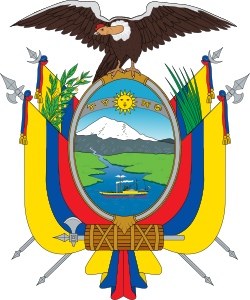 |
|---|
The Cabinet of Ecuador is part of the executive branch of the Ecuadorian government, consisting of the heads of the variable number of government ministries. [1] The cabinet is appointed by the President.
 |
|---|
The Cabinet of Ecuador is part of the executive branch of the Ecuadorian government, consisting of the heads of the variable number of government ministries. [1] The cabinet is appointed by the President.